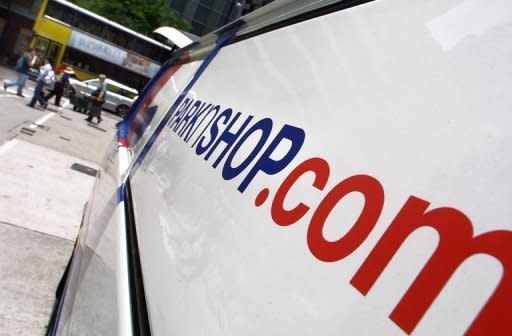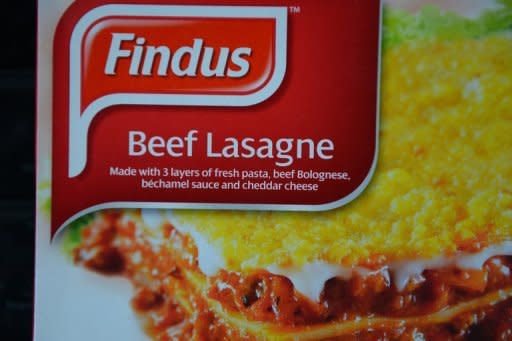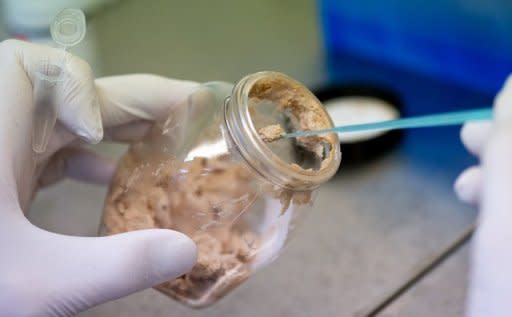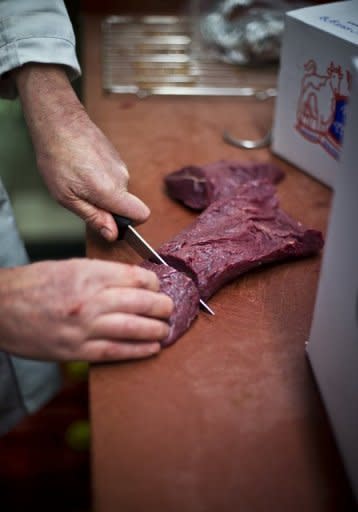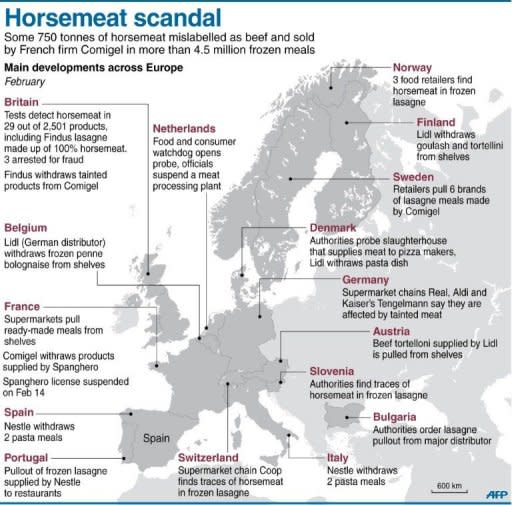Europe horsemeat scandal spreads to Asia
The fallout from Europe's horsemeat scandal has spread far outside the continent, with an imported lasagne brand pulled from shelves in Hong Kong and a new row over the treatment of horses farmed in the Americas. A host of top players have been caught up in the spiralling scandal including Nestle, the world's biggest food company, top beef producer JBS of Brazil and British supermarket chain Tesco. Hong Kong authorities ordered ParknShop, one of the biggest supermarket chains in the city, to remove lasagne made by frozen food giant Findus, one of the firms at the centre of the scandal. The product was imported from Britain and made by French firm Comigel. Hong Kong's Centre for Food Safety said Wednesday that the item "might be adulterated with horsemeat which has not undergone tests for veterinary drugs". The chain, owned by tycoon Li Ka-shing, has about 280 stores in Hong Kong and the neighbouring gaming hub of Macau. In Europe, the Czech Republic became the latest country embroiled in the horsemeat affair, with food inspectors ordering Tesco to withdraw Nowaco brand frozen "beef" lasagne after detecting horsemeat. The Czech Agriculture and Food Inspection Authority said it had found horse DNA in two samples of the Nowaco meals manufactured by the Tavola company in Luxembourg. Croatian company Ledo, which imported beef lasagne containing horsemeat into Slovenia, on Wednesday also accused Tavola of being responsible. Supermarkets in Belgium, Britain, Denmark, Ireland, Finland, France, Austria, Norway, The Netherlands, Germany, Italy, Spain, Portugal, Sweden and Slovenia have all removed meals from shelves. The Czech authority noted that horsemeat is sold for human consumption in the country, but that if not mentioned on the product label it was misleading to consumers and could lead to a fine of up to three million koruna (118,000 euros, $159,000). Spanghero, the French firm that sparked the food alert by allegedly passing off 750 tonnes of horsemeat as beef, was on Monday allowed to resume production of minced meat, sausages and ready-to-eat meals. But the company, whose horsemeat found its way into 4.5 million "beef" products sold across Europe, will no longer be allowed to stock frozen meat. The firm's sanitary licence was suspended last Thursday after it was accused of passing off huge quantities of mislabelled meat over a period of six months. Investigators on Wednesday conducted a second day of raids on Spanghero's headquarters in Castelnaudary in southern France, a source close to the probe said, adding they had already seized several documents and copied computer records. About 60 workers from French company Fraisnor, which produces fresh lasagne, demonstrated on Wednesday in the northern town of Feuchy for state financial aid, saying their sales had dived 70 percent after the scandal. The company, which manufactures about 700 tonnes of fresh lasagne a month, is on the point of laying off some of its employees. Most Swiss supermarkets on Wednesday withdrew horsemeat products from their shelves, not due to the spiralling fake labelling scandal but over allegations of cruel conditions on farms where horses are bred for meat. German discount chain Lidl told AFP it had removed all horsemeat products from its shelves in Switzerland, while the country's second largest supermarket chain, Coop, said it had withdrawn around 20 horsemeat sausage products. The move came amid outcry over an investigative consumer show that aired Tuesday evening on Swiss public television, featuring images taken by animal protection activists showing starving and visibly sick and suffering horses on farms in a number of countries that provide meat to Swiss stores. The Zurich-based Animal Protection Association had sent investigators to large horsemeat producing countries Canada, the United States, Mexico and Argentina to probe how the animals were kept, transported and slaughtered. "Our investigators found that the horses were bred in conditions that did not meet any of the norms in place in Switzerland and the European Union," project leader Sabrina Gurtner told AFP. Coop however said it would continue to sell fresh horsemeat, pointing out that it receives 70 percent of that meat from France and the remaining 30 percent from Poland. Switzerland's largest supermarket chain, Migros, meanwhile said it would not withdraw any horsemeat products, saying it trusted its Canadian supplier. Dried horsemeat products are widely consumed in Switzerland. Elsewhere Bolivia's President Evo Morales slammed western fast food as "a threat to humanity" as he accused multinational firms of seeking to block the development of his country's staple food quinoa. The left-wing Bolivian leader slammed capitalist "fast food" for causing cancer and other diseases, in a speech to the UN General Assembly to launch the commemorative year. Morales steered clear of the growing horsemeat scandal which European officials have been keen to stress is a labelling issue not a public health issue. A ParknShop supermarket van is shown in Hong Kong in May 2003. Lasagne made by frozen food giant Findus was being sold at supermarkets run by ParknShop, one of the biggest supermarket chains in the southern Chinese city and owned by tycoon Li Ka-shing. A Findus 320g beef lasagne frozen readymeal box taken on February 8, 2013. Hong Kong authorities ordered ParknShop, one of the biggest supermarket chains in the city, to remove lasagne made by frozen food giant Findus, one of the firms at the centre of the scandal. A sample of a noodle product with meat is DNA-tested in a laboratory on February 19, 2013 in Berlin. A host of top players have been caught up in the spiralling horsemeat scandal including Nestle, the world's biggest food company, top beef producer JBS of Brazil and British supermarket chain Tesco. Peter Wisker cuts meat at his horse meat butchery in Haarlem in the Netherlands on February 13, 2013. Supermarkets in Belgium, Britain, Denmark, Ireland, Finland, France, Austria, Norway, The Netherlands, Germany, Italy, Spain, Portugal, Sweden and Slovenia have all removed meals from shelves over undeclared horsemeat content. Graphic showing the main countries in Europe that have been affected by the horsemeat for beef scandal.
